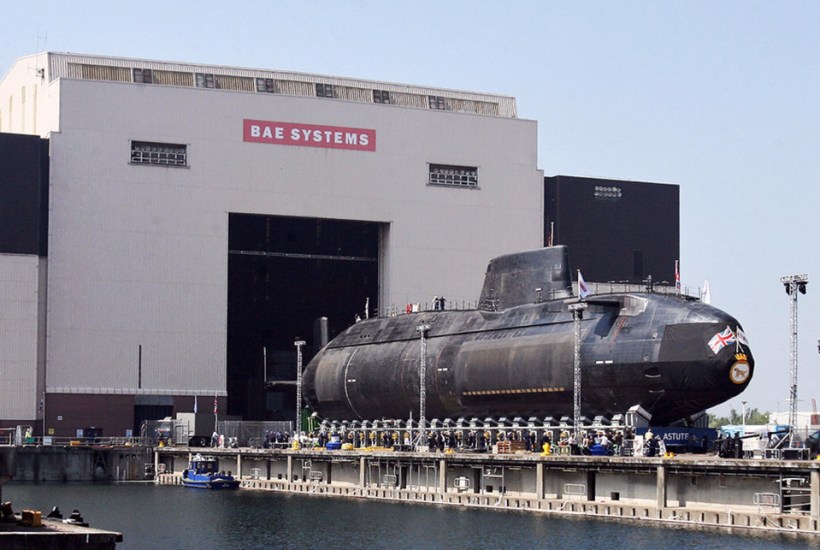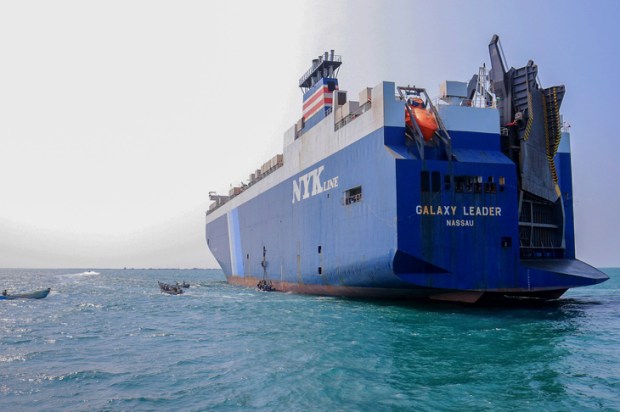The Turnbull government’s decision to buy a fleet of diesel submarines from France instead of Japan was unsettling. Conversely, France’s existing nuclear-powered submarines, while eschewing nuclear weapons, would have cost less cost and been delivered sooner with no need to re-engineer the existing technology. Tony Abbott is right: ‘It was always folly to take an existing French nuclear submarine and waste 15 years redesigning it and rebuilding it as an inferior sub to what was potentially available now’.
Thus, cancelling it to buy eight US/UK nuclear-powered submarines is sensible. Safety concerns are overblown. Since its first nuclear-powered submarine in 1955, the US Navy has completed around 5,500 accident-free reactor years with many vessels travelling over 200 million km. The advantages of nuclear-propelled submarines for patrolling Australia’s three ocean strategic zone are many, substantial and self-evident, though the number required to carry out surveillance, interdiction and strike tasks may be debatable. AUKUS also puts the stamp on three geopolitical verities: China is a formidable comprehensive national power that has displaced a severely diminished Russia as the principal strategic competitor; the strategic rivalry has pivoted from the Euro-Atlantic to the Indo-Pacific; and nuclear propulsion for the navy will signify the greatest projection of Australian military power into the region. The Economist called it the shifting of geopolitical tectonic plates.
However, concealed minefields could still sink the project. We are in a legal limbo: the French contract has been cancelled before a new contract has been signed. The extended time-lag for complete delivery of the subs, around 2040, is a worry.
The justification for the change of mind was that security threats have grown at an alarming pace in the intervening years, necessitating a total reset of Australia’s maritime defence policy. How then can we afford 15-20 years to get that capability in a rapidly changing military-technological environment? The equation doesn’t compute. China’s proven ability to fast-track defence acquisitions means it could embark on a major naval upgrade as a riposte to Aukus.
Submarines themselves could become obsolete in that timeframe. In a recent study, ANU experts in ocean, nuclear and materials sciences, and AI and autonomous drones concluded that sometime in the 2050s the oceans will become ‘transparent’, submarines will lose their only advantage of stealth and ‘the submarine era will likely come to an end’. Completed before the Aukus announcement, this was not a politically tainted study. Also, can the government avoid defence acquisitions being corrupted by an industrial policy to create Australian jobs, or protect an MP’s job, that adds to the costs and delays?
There’s a real risk of creating a self-fulfilling enmity with China. Its foreign ministry spokesman Zhao Lijian said AUKUS ‘greatly undermines regional peace and stability, aggravates (the) arms race, and hurts international non-proliferation efforts’. China’s economic dynamism, industrial capacity and growing technological sophistication are remarkable. Its ‘onwards and upwards’ trajectory is even more telling when calculating effective military strength in any future armed conflict. It has rapidly become self-reliant in defence production, often based on borrowed, adapted, or purloined foreign technology. It is developing advanced capabilities in hypersonic missiles, warships, cyberweapons, and space and information domain assets that have steadily cut the margins of US naval superiority. And the need for secure lines of communication to its expanding, overseas, import-export markets makes it imperative that it becomes a modern maritime power.
Granted, China’s navy is not battle-tested but neither has the US navy seen combat operations since 1945. The US is still the single most powerful and influential actor, but US primacy – military, economic, cultural – is waning. Global institutions will serve its power and purposes less and less, producing a decline in the American order. Allies cannot be confident of the will and capacity of the US to continue as the anchor of Indo-Pacific security settings. Aukus binds us tightly to Scott Morrison’s ‘forever partnership’ with the US. It is both a strategic bet on a fundamental reorientation of American attention and resources to the Indo-Pacific and a step-change in Australia’s military capability that augments the other two allies’ remote-controlled military footprints in this region. In December 2014, three months before his death, Malcolm Fraser warned that the US – its decision-making flawed, judgment suspect, and interests diverging from Australia’s – had become a dangerous ally. Even if not dangerous, should we not worry that Biden’s US is an unreliable ally? With a distressing record of cutting and running, as in Afghanistan, the US could leave us exposed as a lonely outpost of the Anglosphere in the Indo-Pacific.
Another concern is the proliferation potential of assisting a non-nuclear country to acquire nuclear-powered submarines. In contrast to all other nuclear-armed countries with nuclear-powered submarines that use low and medium-enriched uranium below 20 per cent purity, the UK-US submarines use 90-95 per cent highly enriched uranium that is full weapon-grade. The NPT permits non-explosive military uses of nuclear material, subject to safeguards measures that are suspended while the material is in military use but reapply as soon as it is returned to civilian use. But in this case the transfer is from military use by one country directly for military use by another, and for the return of the nuclear cores to the original country for decommissioning after their 30-year life cycle has been completed. Australia will seek an arrangement with the IAEA to stay NPT-compliant. Fortuitously, the IAEA director general is from Argentina, the next UN secretary general is expected to be from Latin America, and the DG’s possible interest in that office might ensure he doesn’t offend the UK and the US – veto powers – who could scupper his candidacy. Critics of the deal are worried less about Australia per se than the precedent this sets for opening a ‘Pandora’s Box of proliferation’ for other more problematical countries. That’s not a trivial concern.
Got something to add? Join the discussion and comment below.
Get 10 issues for just $10
Subscribe to The Spectator Australia today for the next 10 magazine issues, plus full online access, for just $10.
You might disagree with half of it, but you’ll enjoy reading all of it. Try your first month for free, then just $2 a week for the remainder of your first year.














Comments
Don't miss out
Join the conversation with other Spectator Australia readers. Subscribe to leave a comment.
SUBSCRIBEAlready a subscriber? Log in